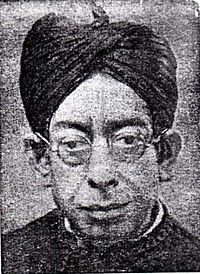The Crimson Universe
Active Member
Few years back when i asked for unabridged editions of the major upanishads with an explanation or commentary in simple English, one of the members of HDF (Mr.Yajvan) recommended me Muni Narayana Prasad's translation.
I went to the library and found only the Chandogya upanishad which is a fat volumous book. I think it was unabridged. Not sure. The explanation too was simple and easy to grasp. I was very happy with his recommendation. But i didn't find the rest of the upanishads by that same author in the library.
Later, back at home when i looked online, i found a couple more upanishads by Muni Narayana Prasad, but they were all thin books, and seemed to me that they were brief, abridged editions.
Are there any good unabridged Upanishads that you know of?
I checked a few sample pages online of The Principal Upanishads by Radhakrishnan, but it speaks of things that i'm not familiar with, like sexual intercourse as a kind of sacrifice and adding one's semen into the fire of sacrifice. The author Radhakrishnan doesn't explain in detail how those sacrifices should be carried out and for what purpose. He doesn't say whether the adding of the semen in the fire is a kind of metaphor or should it be taken literally. His translation of the upanishads also speaks of many other things like water is also called fire (but he doesn't explain why it is called such) and fails to introduce the novice or western reader about such things.
I went to the library and found only the Chandogya upanishad which is a fat volumous book. I think it was unabridged. Not sure. The explanation too was simple and easy to grasp. I was very happy with his recommendation. But i didn't find the rest of the upanishads by that same author in the library.
Later, back at home when i looked online, i found a couple more upanishads by Muni Narayana Prasad, but they were all thin books, and seemed to me that they were brief, abridged editions.
Are there any good unabridged Upanishads that you know of?
I checked a few sample pages online of The Principal Upanishads by Radhakrishnan, but it speaks of things that i'm not familiar with, like sexual intercourse as a kind of sacrifice and adding one's semen into the fire of sacrifice. The author Radhakrishnan doesn't explain in detail how those sacrifices should be carried out and for what purpose. He doesn't say whether the adding of the semen in the fire is a kind of metaphor or should it be taken literally. His translation of the upanishads also speaks of many other things like water is also called fire (but he doesn't explain why it is called such) and fails to introduce the novice or western reader about such things.

